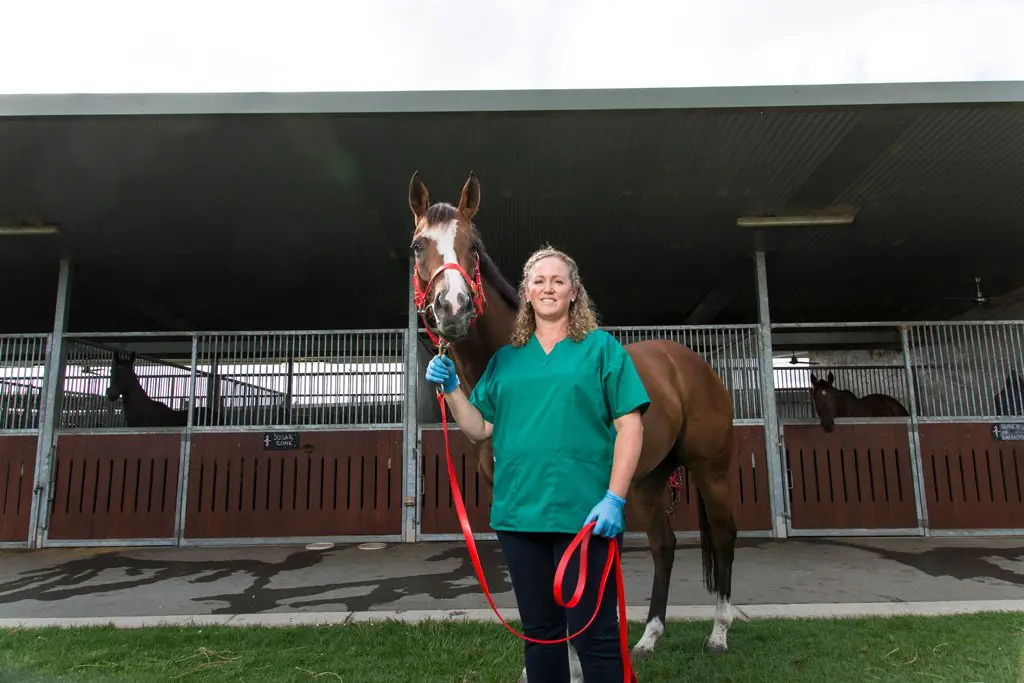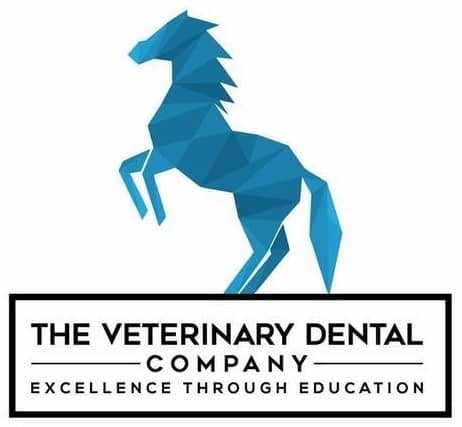Dr Olivia James—from the horse’s mouth

Not only is Dr. Olivia James an equine veterinary dentist specialist-in-training but she has also created a unique online equine dental portal that delivers education anywhere in the world.
To call Dr. Olivia James driven would be a huge understatement. Deciding early in her career to follow her passion for equine dentistry, she is now arguably among the most qualified veterinary dental surgeons in the Southern Hemisphere. She has also launched an online education portal designed to teach equine dentistry to veterinarians around the world. She has achieved all this while running an equine veterinary practice, raising two boys with her husband, and earning a black belt in Miranda Kai karate.
While Dr. James started her career as a general vet working in small animal practices in Dubbo and Canberra, she took a job at the Canberra Equine Hospital in 2007. During her three-year stint, she gained plenty of clinical skills and enough confidence to strike out on her own. Dr. James embraced her passion and started Brindabella Equine Mobile Veterinary Service, a veterinary practice with a focus on equine dentistry.
“When I opened my business in 2010, it was just me, a car and some portable equipment,” recalls Dr. James. “I was also offering general equine services so I was treating lameness, sickness and colic, as well as performing dentistry.”
Her own practice
Before branching out on her own, Dr James took the time to gather input from many colleagues. Nearly all tried to talk her out of starting her own business due to the additional workload. Despite this, she forged ahead and after an initial golden period, the practice management side became almost overwhelming.
“Initially, I had to do everything,” she recalls. “It involved a lot of late nights until I eventually saw the light and outsourced the admin work. Any veterinarian can hang their shingle on a wall but there’s much more to running a successful business.”
The business rapidly gained clients as word of mouth spread. Dr James purchased stables and started to appoint staff. A purpose-built equine facility, consisting of five big boxes and a treatment area, was built on her property. While the business was undoubtedly a success, with the benefit of hindsight, she believes there are some things that could have been done better.
“I started my practice with virtually no business skills,” she says. “After completing a lot of business training, I realised it would have been much smarter to purchase and optimise an existing practice. Starting my own business from scratch was really just reinventing the wheel.”
Gaining business skills
To improve her business skills, Dr James undertook business training during 2015 and 2016 through Anthony Robbins, the US-based business and life coach. While these courses are expensive, she saw the cost as an investment.
“Business owners, and particularly veterinarians, all think their businesses are unique but they’re not,” explains Dr James. “Business is business; it’s just the product that’s different. You need to have a grasp of the basics, whether it’s admin, HR, advertising, marketing or financial management. It’s no good being able to cure lameness in a horse if you don’t have the structure in place to invoice the client correctly and then collect payment. Without proper business acumen, you’re setting yourself up to fail.”
We go into this profession to treat animals, and equine dentistry has a strong, direct link to animal welfare. I feel very privileged to be able to make a positive impact in the lives of my patients and owners.
Dr Olivia James, equine veterinary dentist
Putting her business training to good use, Dr James ran Brindabella Equine Mobile Veterinary Service until August 2018. Selling the business allowed her to concentrate on further studies, move to Brisbane with her family and start another new practice, Australian Veterinary Equine Dentistry.
Becoming a specialist
Dr James’ passion for equine dentistry is apparent in the qualifications she has earned in pursuit of her dream career. In 2010, she was awarded membership by the Australian and New Zealand College of Veterinary Scientists in Equine Dentistry. At present, no more than 30 individuals in Australia and New Zealand hold that qualification. In 2015, she passed her diplomate exams through The International College of Equine Veterinary Odontologists in Canada.
In 2014 Dr James applied for the Advanced Standing in Equine Dentistry with the American Veterinary Dental College and completed credentials in 2018. She passed the theory examinations in January 2019 and sat her practical examinations last June.
“I had to fly to Las Vegas to sit the practical exam but, unfortunately, I didn’t pass both four-hour sets,” says Dr James. “These exams are designed to be extremely rigorous and it was quite a stressful experience with huge time pressure. I’ll have another crack this year and I’m confident I’ll be able to pass. Once I’m a full diplomate of the American Veterinary Dental College, as far as I know, I’ll be the only practising equine veterinary dental specialist in the Southern Hemisphere—something I never dreamed possible when I first started out.”
Pony aid
It was the decision to undertake volunteer work on a small Indonesian island that opened a whole new chapter in Dr James’ career. A veterinary dentist on the other side of Australia, Dr Kirsten Jackson from Dental Vet in Forrestdale, WA, was instrumental in facilitating Dr James to join the volunteer vets. The work is organised through Animal Aid Abroad and sends veterinarians to the Gili Islands in Indonesia to treat working ponies. The ponies are the only mode of transport on the islands and carry everything from tourists to building materials.
Dr Jackson remembers her first trip to the islands clearly. “The state of the ponies was terrible. There was a lot of mistrust of westerners—particularly females—and many wouldn’t let us treat their ponies. The wounds were horrific as there was no padding on the harnesses and the leather was held together by nails which caused some terrible lacerations. There was a real need for equine dentists as the bits were made of anything from bailing twine to poly pipe to twisted wire.”
Dr Jackson contacted Dr James and convinced her to join a visiting group last May, treating ponies and training local veterinarians.
Dr James adds: “One of the local vets, Dr Peni, was extremely keen to get involved and wanted to undertake further study in equine dentistry. She asked me what resources were available and I couldn’t come up with a satisfactory answer, other than a few textbooks. Even then, the number one textbook was out of print. Indonesia is a developing nation and it would have been impossible for her to travel overseas to conferences.”
In order to assist the local vet, Dr James searched for equine dentistry resources online only to find a total of 10 hours of lectures available. This lack of information was unacceptable to Dr James and she decided to remedy the situation.
Online portal
Back in Australia, she had a vision of building an online platform about equine dentistry that could be easily accessed from anywhere. She began contacting colleagues from around the world to see if they would share their expertise. The response was overwhelmingly positive with nearly everyone keen to help.
